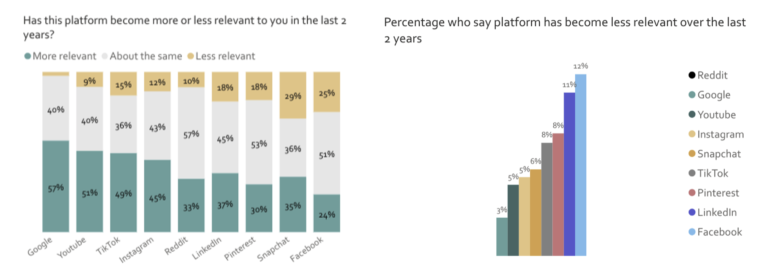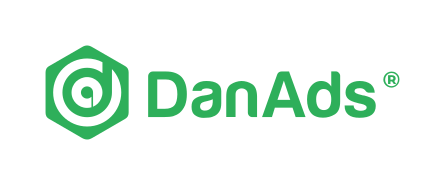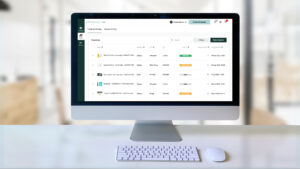Article originally published in DCN’s In Context series.
Findings from the “2022 SME Advertising Study” by CoLab Media Consulting — a study so new that the full results have not been released yet — reveal that many advertisers are turning their backs on Facebook. At the same time, many are moving toward localized advertisements, premium contexts, and self-serve tools. What are the implications for publishers and media owners when the established order shifts?
Why are Facebook ads becoming less popular
The digital advertising landscape has long been dominated by Facebook (now Meta). But that tide appears to be turning, as the study suggests that both consumers and advertisers are looking to spend their money elsewhere. The important question is, “Why?”

The possible reasons are many. They include increased competition from other social media platforms like TikTok and Snapchat, as well as the company’s less-than-stellar reputation when it comes to data privacy and a series of high-profile boycotts. When asked about the social platforms they advertise on, only Facebook was becoming less relevant to advertisers. High cost, lack of transparency, and a lack of suitable targeting options were the most common concerns.
With that said, advertisers did report an increasing interest in self-serve advertising platforms. We call this the Facebook Effect: having long served SME (also known as SMB) advertisers with a do-it-yourself ad platform, the social media giant has whetted their appetite for automated solutions that cater to lower budgets. For many small businesses, Facebook Ads Manager was probably their first experience of booking an online ad by themselves. In the survey, nearly seven in 10 SME advertisers described themselves as proficient or highly proficient in self-serve advertising tools.
As Julia Belanger, General Manager at The Washington Post’s Zeus Prime, observed during a panel discussion in April: “We saw that advertisers were going to social, not because it was effective, but because it was fast, and easy, and they could pay with their credit card.” The Washington Post, for its part, is trying to tap into that demand with Zeus Prime: “a first-of-its-kind, self-service marketplace that will accelerate monetization gains for publishers while giving brands a seamless way to extend their reach and message.”

Who will replace Facebook?
Small business advertisers are growing bolder and more ambitious with where they spend their advertising dollars. In the survey, more than three in four said that advertising in premium contexts was a priority. This supports the hypothesis that even small advertisers are increasingly conscious of brand safety; a key distinguishing factor between premium publications and platforms like Facebook. Two in three SME advertisers were concerned about the context that their ads were placed alongside on social media platforms.
Although many SMEs report a desire to advertise in premium contexts, fewer have actually followed through. The most commonly reported reason was cost; there remains a strong sense that premium contexts are too expensive for smaller advertisers. It will be interesting to see if this attitude changes as an increasing number of premium publishers adopt self-serve platforms that offer ad space for significantly lower entry prices. Tripadvisor, The Washington Post, and The Atlantic are all examples of premium publishers that have taken this route.

Local beats global
Another interesting finding was that geographic targeting was a top priority for SME advertisers. They ranked local geography above professional, lifestyle and even demographic targeting in order of importance. An interesting and surprising finding — but was it supported by consumer preferences when viewing adverts? CoLab also interviewed a general population sample about how they perceive the advertisements they are exposed to. Those consumers likewise reported a strong preference for local advertising. Even in an increasingly globalized marketplace, localization remains a winning strategy.
Almost 90% of SME advertisers agreed that diversifying their advertising dollars across different platforms was a priority. We found that they used an average of 3.4 different social media platforms, and 3.6 different types of ad networks (e.g. SEM, display, CTV, DOOH).

Implications for publishers
So what do these findings mean for publishers and media owners?
Perhaps most importantly, publishers should not discount SMEs as viable advertisers. The desire to advertise in premium contexts — as opposed to solely on social media — is strong in the majority of SMEs surveyed. At the same time, there’s a clear demand for low-budget, do-it-yourself ad tools, particularly at a time when advertising budgets are getting slashed and businesses are looking to optimize ROI and profitability.
Another key point is that both consumers and advertisers value localized advertising. Publishers and media owners with the ability to offer localized targeting should consider the growing importance of local and contextual advertising as we approach the inevitable phasing out of third-party cookies. Advertisers are already looking for new solutions; fast-moving publishers can get started early and establish a foothold by using their first-party data as their USP.
Facebook generates $118 billion in revenue, with 97% (or more) of that coming from advertising. When both advertisers and consumers are telling us that Facebook is becoming less relevant to them, that means some of those dollars are looking for a new home. Which publishers are going to go out there and get them?






